Resources
Let us help you find what you’re looking for.
What’s here for you

The TechEthos Societal Readiness Web Tool (SRT)
The TechEthos Societal Readiness Web Tool is a prototype for a tool to help actors in product design innovation develop product social readiness, and to facilitate qualitative societal readiness self-assessment.
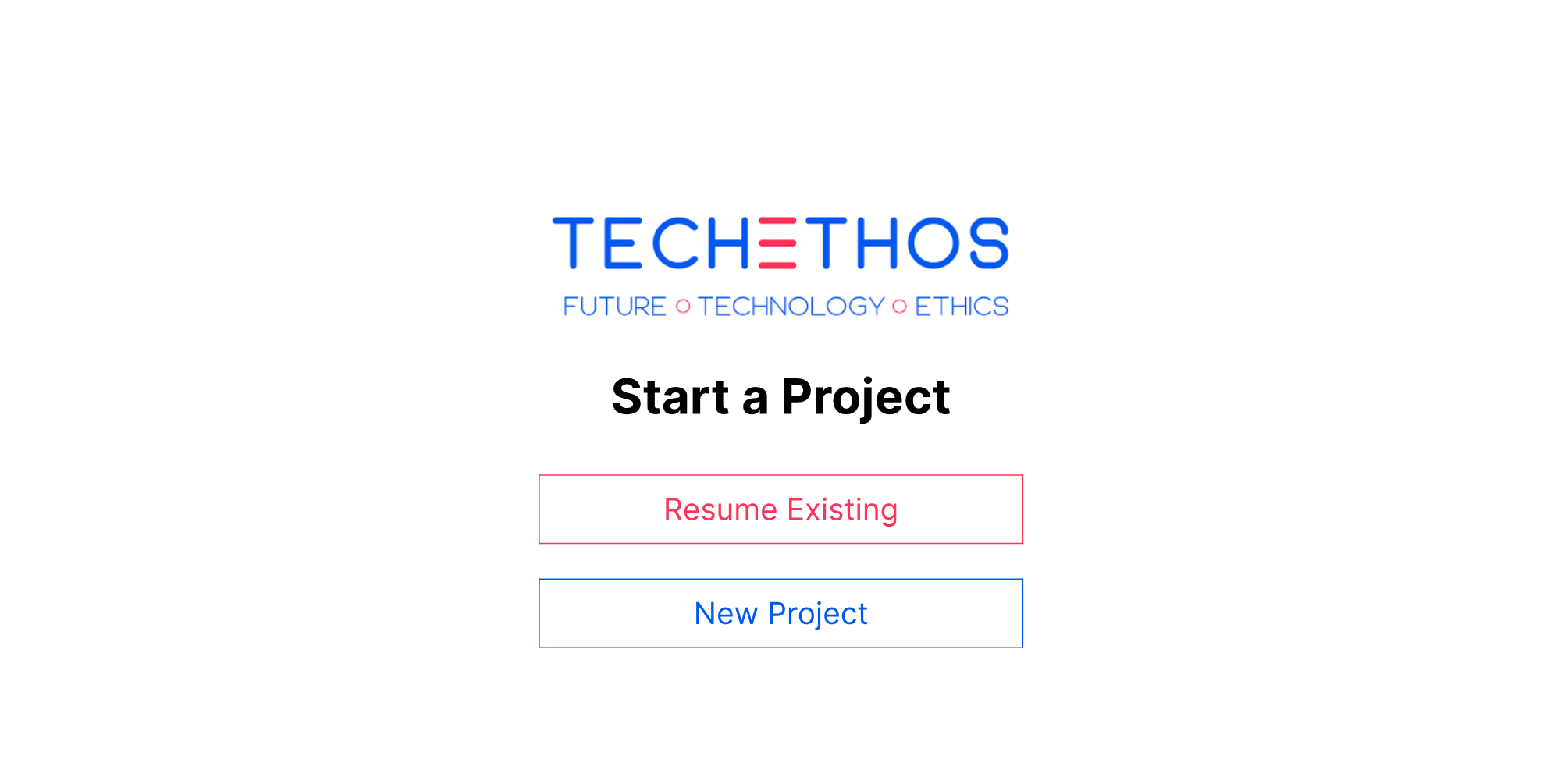
TechEthos Societal Readiness Web Tool
TechEthos Societal Readiness Tool is of particular interest to individuals in product design innovation, professional associations in product design fields, and academic researchers with an interest in product design ethics or product readiness from ethical, legal and social perspectives.

Newsletter #9: Y/our ethics decide! installations, the Societal Readiness Tool, and Videos and Policy Brief Compilations
In this ninth newsletter, you will find insights concerning the TechEthos Societal Readiness Tool (SRT), the Anticipatory ethics Matrix (TEAeM), our videos and policy briefs compilations, and the Y/our ethics decide! physical installations!
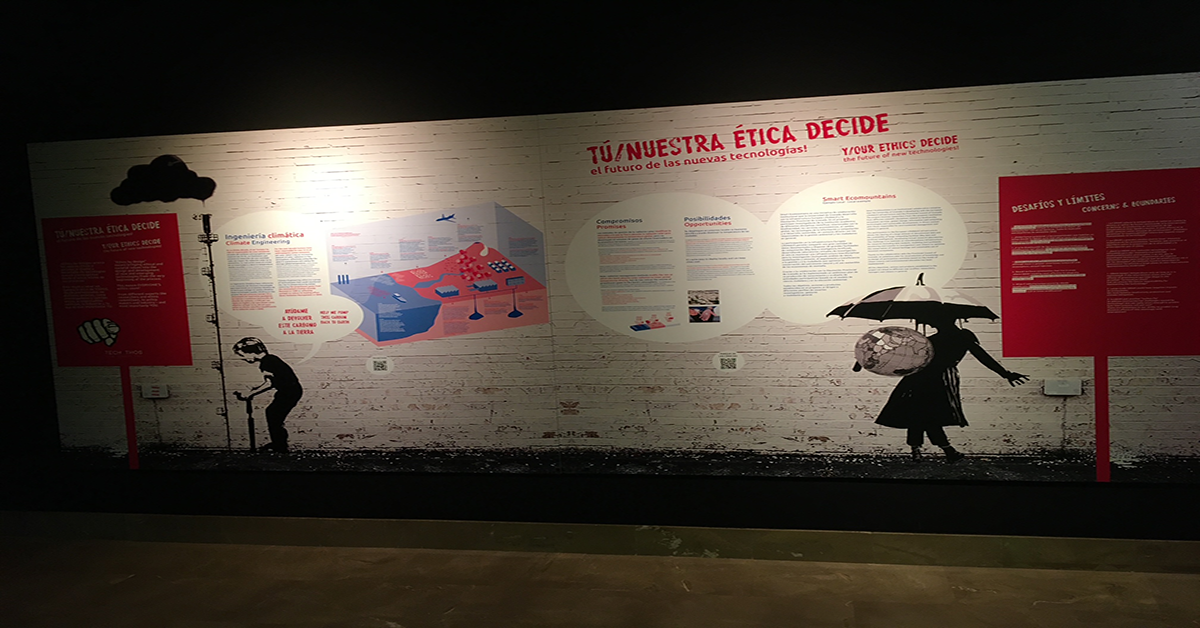
Installation Insights: TechEthos across 6 European Science Engagement Organisations
To enhance awareness of the rapidly evolving landscape of new and emerging technologiesTechnologies whose development and application are not completely realised or finished, and whose potential lies in the future. [...], TechEthos six science engagementPublic engagement describes the myriad of ways in which the activity and benefits of higher education and research can be shared with the public [...] organisations hosted the TechEthos physical installation: Y/our ethics decide!

Advisory and impact board members’ activities, cooperation and clustering activities
This deliverable describes the ADIM (advisory and impact) board and cluster activities: horizontal coordination on cooperation and synergies with other relevant projects and stakeholders.

Dissemination and Communication Report
This deliverable sheds light on the outcomes and results of the TechEthos dissemination and communication strategy.

Societal Readiness Tool
This report introduces the Societal Readiness Tool (SRT) – providing guidance to embed concerns for ethical and social impacts in product development and conduct qualitative self-assessment of the readiness level of the developed products.

Newsletter #8: Societal embedding of new and emerging technologies & TechEthos Anticipatory ethics Matrix (TEAeM)
In this eight newsletter, you will find insights concerning societal embedding of new and emerging technologies & TechEthos Anticipatory ethics Matrix (TEAeM).
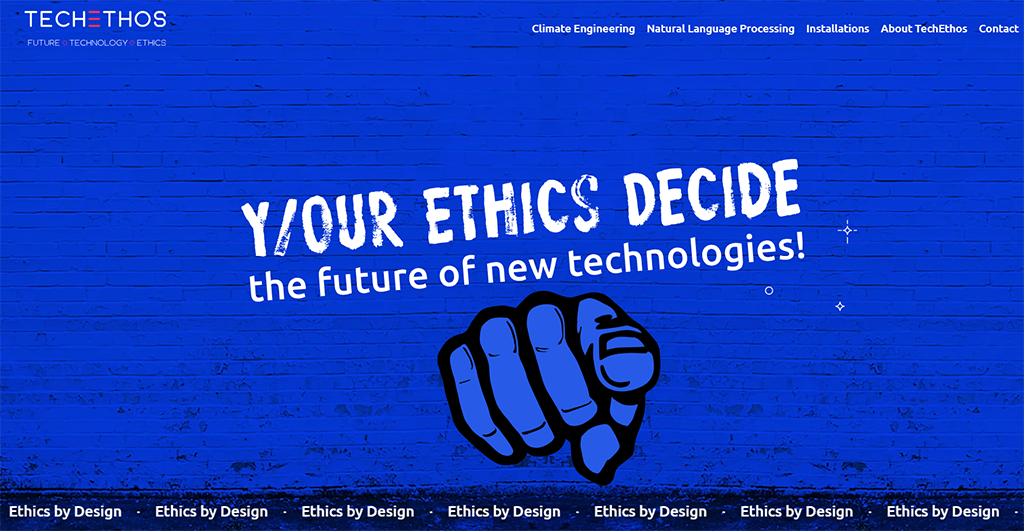
Y/our Ethics Decide: an interactive Digital Installation on the ethical dimensions of Climate Engineering and Natural Language Processing
Explore the ethical frameworkEthical frameworks outline general or specific principles [...] More with an immersive digital installation on Climate Engineering’s effects and the influence of Natural Language Processing.

Anticipation of societal embedding of new and emerging technologies
This deliverable explores the societal embedding of new and emerging technologies, and underlines important principles like equity, reliability, and the well-being of both people and the planet.

Newsletter #7: Spotlight on policy briefs & key messages on ethical governance for European policymakers
In this seventh newsletter, you will find new policy briefs with key messages on ethical governance of our three technology families in focus.

XR and General Purpose AI: from values and principles to norms and standards
This policy brief presents TechEthos’ recommendations for policy makers to ensure ethical governance, international collaboration, and public engagement in the field of eXtended Reality and Natural Language Processing (NLP).

Key messages for the ethical governance of Solar Radiation Modification (SRM) research
This policy brief presents TechEthos’ recommendations for policy makers to ensure ethical governance, international collaboration, and public engagement in SRM research.

Key messages for the ethical governance of neurotechnologies
This policy brief presents recommendations for policy makers for the preparation of legislative or policy initiatives related to neurotechnologies.

Key messages for the ethical governance of Carbon Dioxide Removal (CDR)
This policy brief delves into the regulatory challenges within EU laws and policies surrounding CDR.

Complementing the ALLEA European Code of Conduct for Research Integrity
This report presents provides valuable
input for the revision of the ALLEA EU Code of Conduct for Research IntegrityResearch integrity is guided by the rules imposed on the research community [...]

Criteria for ethical review by RECs in emerging technology research
This report outlines recommendations to help research ethicsResearch ethics require researchers to pay attention to the effects of their research [...] committees (RECs) review research related to new and emerging technologies. It also provides suggestions for other actors in the research governance system.

Suggestions for the revision of existing operational guidelines for emerging technologies
This report scrutinizes current ethical guidelinesEthical guidelines collect general or specific principles [...] More for three new and emerging technologies and provides key recommendations.

Y/our Ethics Decide! Discover TechEthos installation
This article promotes the TechEthos innovative installations on new and emerging technologies. Check out the installations next to you!

Newsletter #6: Spotlight on the multi-stage and multi-stakeholder methodology
The sixth edition of the TechEthos newsletter highlights the results of our multi-stage and multi-stakeholder methodology and announces our upcoming policy event.

Manuscript for an Article Outlining the Refine and Revised Methodology
This report presents a manuscript which details the revised ‘TechEthos’ anticipatory ethics model (TEAeM) – useful to assess the ethical issues of emerging technologies and to mitigate these risks.

TechEthos Anticipatory ethics Matrix (TEAeM)
The enhanced ethical framework, known as the ‘TechEthos Anticipatory ethics Matrix’ (TEAeM), offers a systematic approach for researchers, academics, and policy makers to assess and address ethical concerns related to emerging technologies.

Enhancement of ethical frameworks and outline of detailed ethics framework
This report outlines the enhanced ethical framework, known as the ‘TechEthos Anticipatory ethics Matrix’ (TEAeM).

Newsletter #5: Spotlight on policy briefs for European policymakers
In this fifth newsletter, you will find policy briefs with recommendations on enhancing EU law on new and emerging technologies, and a suggested approach to transition from values and principles to norms and standards.

Multi-stakeholder evolution of TechEthos scenarios
The report utilizes scenarios to explore ethical implications of emerging technologies, engaging stakeholders and providing a multi-stage methodology for assessment while addressing equity, reliability, and environmental sustainability.

Enhancing legal frameworks at the national and international level
This report provides an overview of the key regulatory challenges identified throughout the TechEthos legal analysis of three technology families: climate engineeringTechEthos defines climate engineering as a technology family which enables the modification of natural processes [...] More, neurotechnologies and digital extended reality (XR).

Can you change the world with 12.5 euros a day?
1,50 US dollar. This is the hourly rate of so-called “data labelers”, workers moderating and labeling online content. Yes, we can do better.

Enhancing EU legal frameworks for neurotechnologies
This policy brief presents TechEthos’ recommendations for policy makers to protect and uphold ethical, legal and fundamental rights considerations in the development and deployment of neurotechnologies.
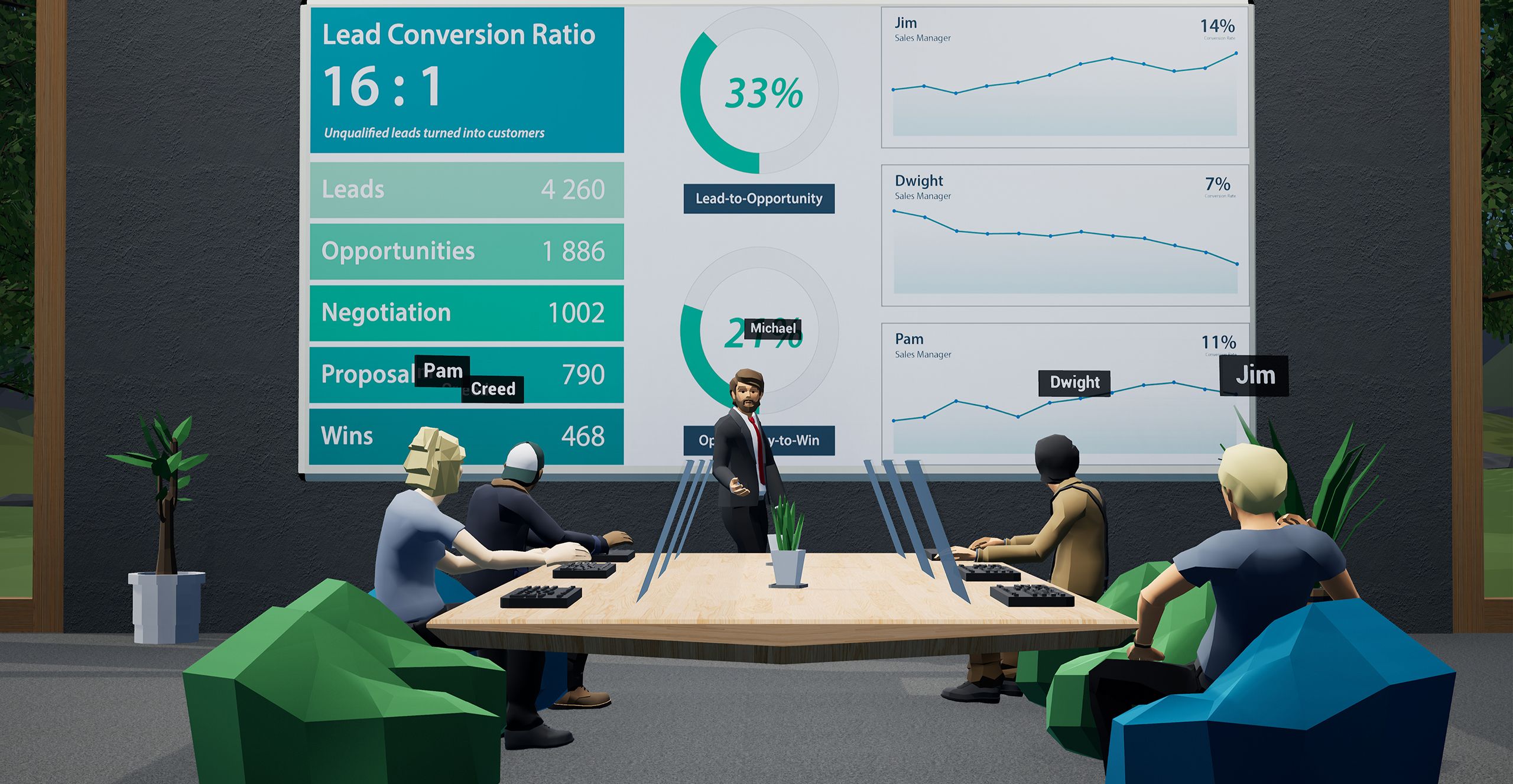
Enhancing EU legal frameworks for Digital Extended Reality
This policy brief presents TechEthos’ recommendations for policy makers to protect and uphold ethical, legal and fundamental rights considerations in the development and deployment of Digital Extended Reality (XR).

Enhancing EU legal frameworks for Solar Radiation Modification
This policy brief presents TechEthos’ recommendations for policy makers to protect and uphold ethical, fundamental rights and sustainability considerations in the research and development of Solar Radiation Modification techniquesA technique is a procedure for realizing a goal [...] More.

Enhancing EU legal frameworks for Carbon Dioxide Removal
This policy brief presents TechEthos’ recommendations for policy makers to protect and uphold ethical, fundamental rights and sustainability considerations in the research, development and deployment of Carbon Dioxide Removal techniques.

Enhancing EU law on emerging technologies
This report presents a series of four policy briefs that offer recommendations to policymakers at the European Union level to enhance legal frameworks for the governance of climate engineering (CDR and SRM), neurotechnologies and digital extended reality (XR).

National legal cases on emerging technologies
This report features nine case studiesA case study is a research approach that is used to generate an in-depth [...] More on the national laws which are relevant for climate engineering, neurotechnologies and digital extended reality (XR).

XR and General Purpose AI: from values and principles to norms and standards
This policy brief takes the position that values and principles are not enough for AI regulation. It proposes the operationalization of values and principles in the form of suggested norms and standards.

The TechEthos game: Ages of Technology Impacts
Developed in co-creation with science engagement professionals and game experts, the TechEthos game aims at capturing societal attitudes, values and concerns towards Digital Extended Reality, Neurotechnologies and Climate Engineering.

Tools to develop and advance scenarios dealing with the ethics of new technologies
This report describes the process of co-creation of the TechEthos game that was developed to enhance the TechEthos scenarios. The TechEthos game will be used to surface ethical issues and concerns in those scenarios and, consequently, helping to enhance them.

Newsletter #4: Spotlight on TechEthos analysis of international & EU law
The fourth edition of the TechEthos newsletter highlights the key findings of our analysis of international & EU law on new and emerging technologies. Have a look at our human rights impact assessment and meet our Advisory and Impact Board.

Moral Equivalence of the Metaverse
This scientific paper published in Nanoethics dives into the question “Are digital subjects in virtual reality morally equivalent to human subjects?”.
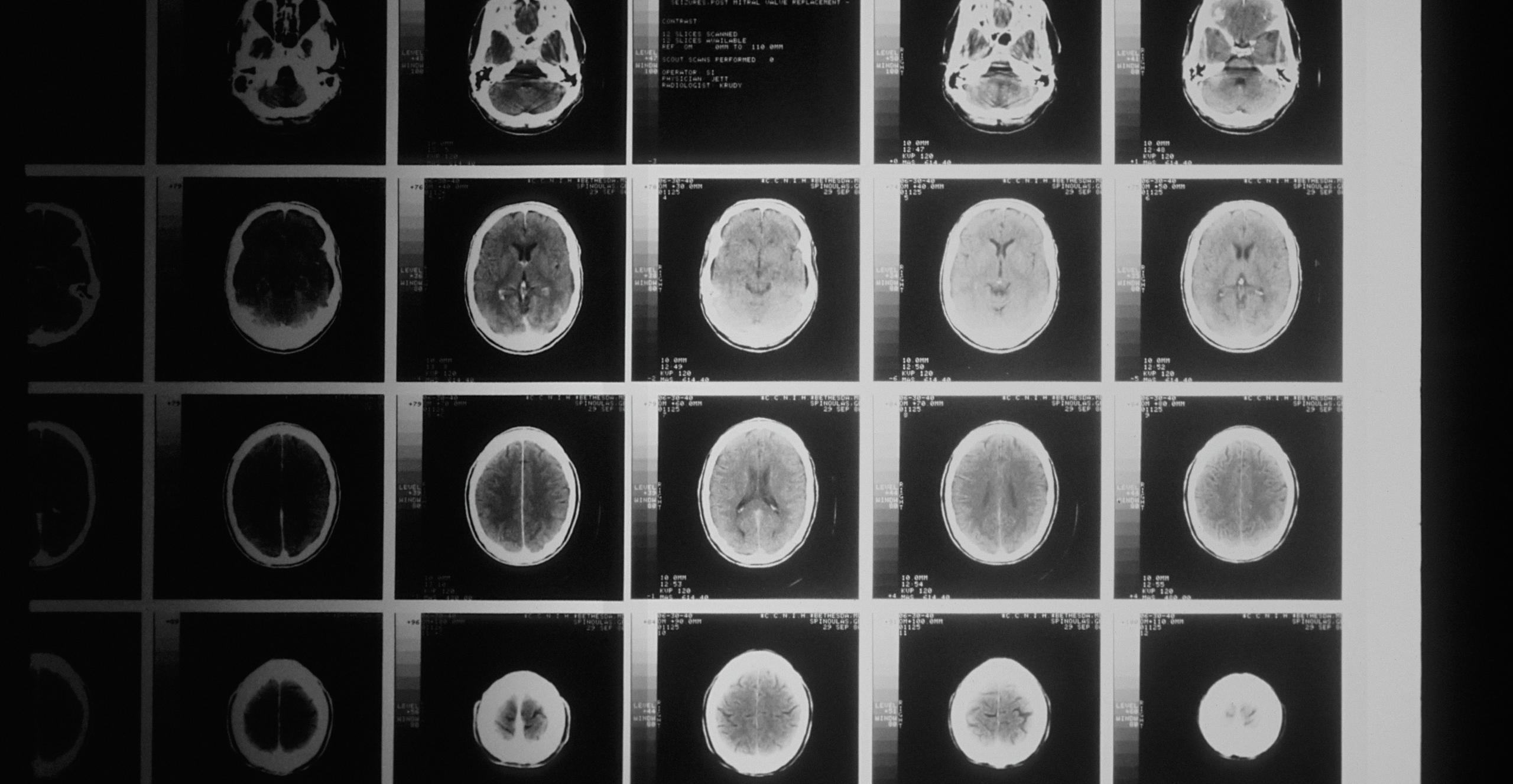
Neurotechnologies through the lens of human rights law
Emerging technologies challenge us to rethink the ways in which our fundamental rights as human beings are protected by law. What happens, for example, to the right to not self-incriminate if advanced neurotechnologies in the courtroom can provide insights into a defendant’s mental state?

Digital extended reality through the lens of human rights law
Emerging technologies challenge us to rethink the ways in which our fundamental rights as human beings are protected by the law. For instance, how might digital extended reality (XR) affect online safety and the emerging rights to be online and to disconnect?

Climate engineering through the lens of human rights law
Emerging technologies challenge us to rethink the ways in which our fundamental rights as human beings are protected by law. For example, how do your rights as an individual stack up if your local environment is affected by climate engineering activities aimed at addressing global climate change?

Newsletter #3: A summer edition of the TechEthos newsletter
This summer edition of the TechEthos newsletter features the results of our ethical, legal and media analyses, a glimpse of the start of our societal engagement activities and an introduction to our cluster of 16 like-minded projects working with us on Research Ethics.

Policy note: Analysis of expert scenarios addressing ethical implications of the selected technologies
This policy note builds on experts reflections shared during three participatory workshops using TechEthos-generated scenarios. Workshops focused on the ethical issues and social implications of TechEthos technology families.

Analysis of international and EU law and policy
This report explores and analyses relevant international and EU laws and policies for their relevance and applicability to TechEthos’ three families of technologies.

Results of media analysis
This report presents the results of the media scan and analysis. The study sought to gain insights on the media discourse on TechEthos’ three families of technologies: Climate Engineering, Digital Extended Reality and Neurotechnology.

Analysis of Ethical Issues
This report features an in-depth ethical analysis of the three technology families TechEthos is focusing on, including core ethical dilemmas and values and principles.

In short: Neurotechnologies
This factsheet introduces the Neurotechnologies technology familyA technology family is a collection of technologies that share techniques that have common goals [...], from key functions and capabilities to examples of applications.

In short: Digital Extended Reality
This factsheet introduces the Digital Extended Reality technology family, from key functions and capabilities to examples of applications.

In short: Climate Engineering
This factsheet introduces the Climate Engineering technology family, from key functions and capabilities to examples of applications.

TechEthos in a nutshell
This general project factsheet explains the challenge TechEthos is addressing and our vision, solutions and focus.
TechEthos plans to turn much of its work into ready-to-use tools. Here is a small preview of what you can expect.
-
Societal Readiness Tool
People often ask themselves: how ready is a particular technology to make its entry into society? Its ethical, legal and social status matter and this tool will allow actors such as researchers and innovators to weigh, compare and evaluate these aspects and make a judgement. -
Ethical Role-Paying Tool
With the help of vignettes, players can take on different ethical concerns and issues from different roles. Whether faced with a consensus or a genuine dilemma, the main message is that ethical values need to be considered and weighed even when there is no way to provide an answer that addresses them fully. -
TechEthos Anticipatory Ethics Model
Based on reflection on own experiences with ethical analysis in the project, this model will help researchers, analysts and policy makers who wish to assess the ethical issues of emerging technologies. -
Digital exhibitions
These interactive exhibitions allow you to explore the technologies selected in the project, the scenarios, and the attitudes, values and concerns they triggered amongst different publics. Ultimately, they allow you to join a dialogue and leave your mark. -
Policy briefs
A series of policy briefs will distill our outputs and encourage policy makers to lead the way in ethically-informed decision making on the governance of technologies.
